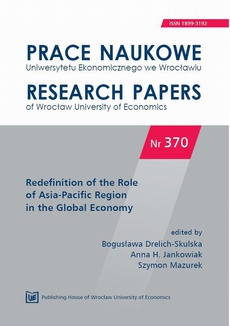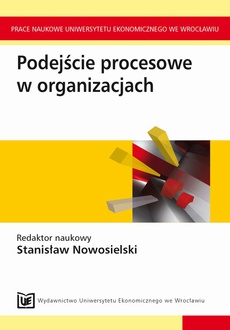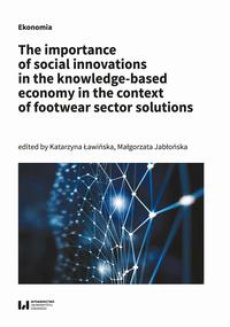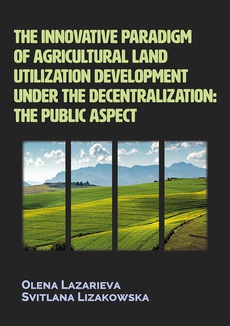POLECAMY

Redefinition of the Role of Asia-Pacific Region in the Global Economy. PN 370
Format:
ibuk
Asia-Pacific region continues to be an essential element of the global economy. Delivering another volume of Research Papers devoted to that region we have no doubts that Asia and Pacific economic importance will only continue to grow. But the world is changing, and so will change the way in which Asian and Pacific economies will – hopefully – grow and prosper.
How the region of huge economic dynamism, but also of diverse economic characteristics, will meet the challenges of the 21st century? Redefinition of the role of Asia-Pacific region in the global economy is a process that is already underway. It has many shades and can be analysed from different perspectives. Both the detailed and overall analysis has a great cognitive value. Appreciating diversity this edited volume presents a collection of 27 papers prepared by the researchers who scientifically deal with various aspects of economic processes taking place in Asia.
| Rok wydania | 2014 |
|---|---|
| Liczba stron | 356 |
| Kategoria | Publikacje darmowe |
| Wydawca | Wydawnictwo Uniwersytetu Ekonomicznego we Wrocławiu |
| ISBN-13 | 978-83-7695-494-3 |
| Numer wydania | 1 |
| Język publikacji | polski |
| Informacja o sprzedawcy | ePWN sp. z o.o. |
Ciekawe propozycje
Spis treści
| Preface | 9 |
| Part 1. Current Trends and Perspectives in Economic Policy of the Asia-Pacific Countries | 11 |
| Katarzyna Żukrowska: The role of Asia-Pacific region in current stage of development of world economy | 13 |
| Elżbieta Czarny, Jerzy Menkes: Role and significance of Asia and Europe in the U.S. policy | 28 |
| Marcin Grabowski: The role of transnational integration in forming of Northeast Asian Community | 41 |
| Szymon Mazurek: Diversity of cluster policies in Asian countries | 57 |
| Tomasz Wojciech Wiśniewski: The concept of energy security – overall analysis approach | 71 |
| Magdalena Broszkiewicz: Corporate Social Responsibility as a new source of competitiveness in Asia | 89 |
| Joanna Kos-Łabędowicz, Sylwia Talar: South Korea model of development of Internet economy infrastructure | 100 |
| Po Kai Fang: Taiwan’s position in Asia-Pacific economic integration after the ECFA | 116 |
| Sebastian Bobowski: Thai clustering – typology of the emerging market | 127 |
| Paweł Dobrzański: Government’s role in Asia-Pacific market economies. Japan vs. China | 138 |
| Part 2. Prospects of Trade, Investment and Finance in Asia-Pacific Region | 151 |
| Elżbieta Majchrowska: New trends in the global trade: TPP – pivot to Asia? | 153 |
| Jerzy Dudziński: Remarks on export of developing countries of Asia, Africa and Latin America in the 21st century | 164 |
| Elżbieta Czarny, Paweł Folfas: Changes in trade introversion of Asian regional trade agreements as a measure of their openness to regional and global cooperation (comparative analysis) | 176 |
| Artur Klimek: Asian stock exchanges: Position and development | 188 |
| Ewa Trojnar: Taiwan’s trade relations in the Asia-Pacific: Current stage and future challenges | 197 |
| Agnieszka Kukułka: Natural disasters and FDI inflow in the developing countries of South-Eastern Asia | 208 |
| Paweł Pasierbiak: International fragmentation of production and foreig ntrade of Japan | 217 |
| Iwona Pawlas: The role of India in the global economy in the beginning of the 21st century | 228 |
| Iwona Sobol: Islamic banking – the case of Malaysia | 240 |
| Part 3. The challenges for the Chinese economy in the 21st century | 251 |
| Marcin Jałowiecki: China’s economy in the future till 2030 | 253 |
| Anna H. Jankowiak: Economic differentiation of regions in China | 267 |
| Małgorzata Smagorowicz-Chojnowska: Xiao as a way to the future capital leadership of the Asian-Pacific region founded on Confucian values (based on the Chinese example) | 281 |
| Małgorzata Dziembała: Prospects for the development of economic cooperation between China and African countries | 294 |
| Kuang-yi Chao: Leadership or partnership – how China’s Shanghai Pilot Free Trade Zone will promote RMB internationalization? | 305 |
| Łukasz Gacek: Challenges for the gas sector in China | 313 |
| Tomasz Bieliński: Development of human capital and governmental support as strategic advantages of Chinese high technology companies | 326 |
| Karolina Łopacińska: The competitive advantage of Chinese companies on the European market, and methods of building their market position | 342 |























